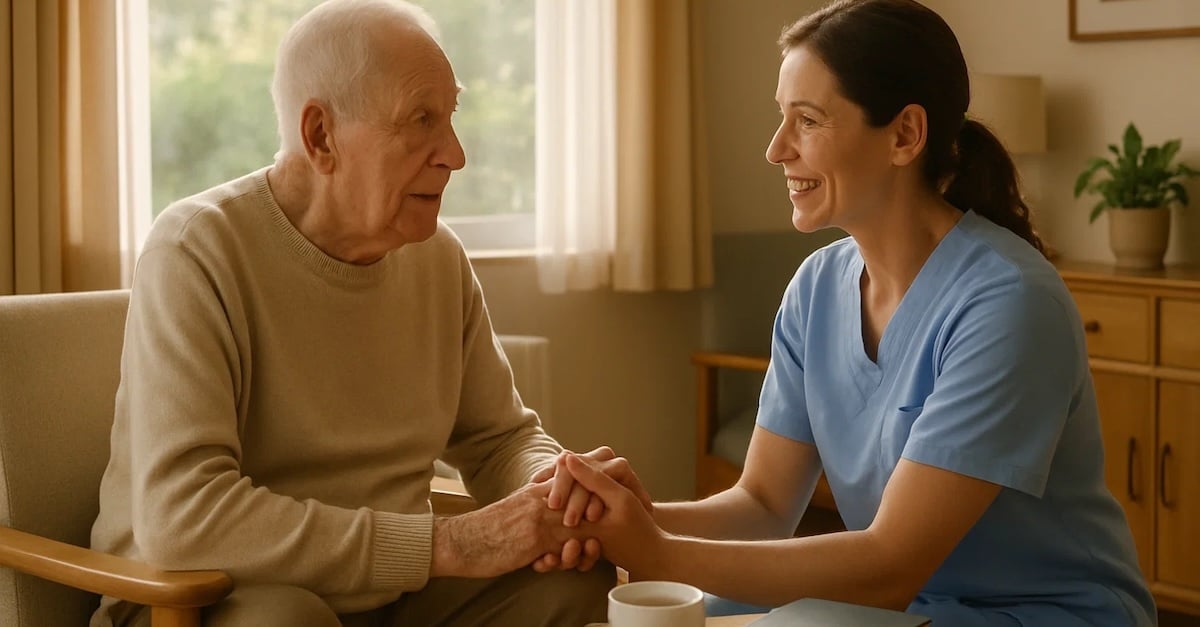Experience Is the Best Teacher: How Dementia Simulations Are Shaping the Future of Empathy in Care
It’s one thing to know what dementia is. It’s another thing to feel it.
Posts about:

It’s one thing to know what dementia is. It’s another thing to feel it.

Touch. Imagine not being touched. Imagine for a whole day no one touches you in any way. Imagine no one shakes your hand, pats your arm, gives you a hug, or clasps your shoulder. Now imagine that for a whole week, a month, a year.
People of advanced age can experience this lack of touch – the children are grown and may live far away and their partner may have died. People living with dementia are especially prone to physical contact deprivation leading to a feeling of isolation and depression and ofttimes agitation with them selves due to frustration and apathy.